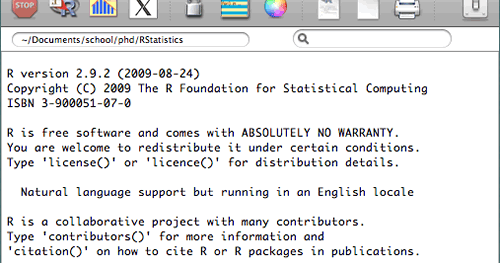
Go to the CRAN website, navigate to the “Packages” link and find the package you want. If, e.g., you get the following error:Įrror: package 'multicore' is not installed for 'arch=x86_64' Sometimes, however, you’ll need to build packages from source. Library(foreach) #will check if it is installed correctly Install.packages("foreach", repos="",dependencies=TRUE)
#Program r for mac install
Usually, simply calling install.packages() in R will successfully install 64-bit packages: There are several options for installing 64-bit packages in R. INSTALLING 64 AND 32-BIT PACKAGES IN R ON A MAC If you run into problems with the official instructions, search through the r-sig-mac listserve posts about it or post a question there yourself. To install 64-bit R on a Mac, go to this website. However, if your system has over 3.5Gb RAM and your R sessions are approaching this limit, 64-bit R is for you. Of course, if your system has less than 3.5Gb of RAM to begin with, then there is no need to switch to 64 bit. Why use 64-bit R? For 32-bit programs, you can only access up to about 3.5Gb of RAM before the program runs out of memory (in R, this comes across as an error reading something like “cannot allocate vector of size xxx Mb”). Luckily, Mac OS’s can do either, so it just depends on the particular program.


Your operating system determines whether you have access to 32 or 64 bit computing. However, if you are working with very large (e.g., 1 GB or more) datasets, you are going to be much better off using 64-bit R.

The 32-bit R is the standard version and works just fine in most cases.


 0 kommentar(er)
0 kommentar(er)
